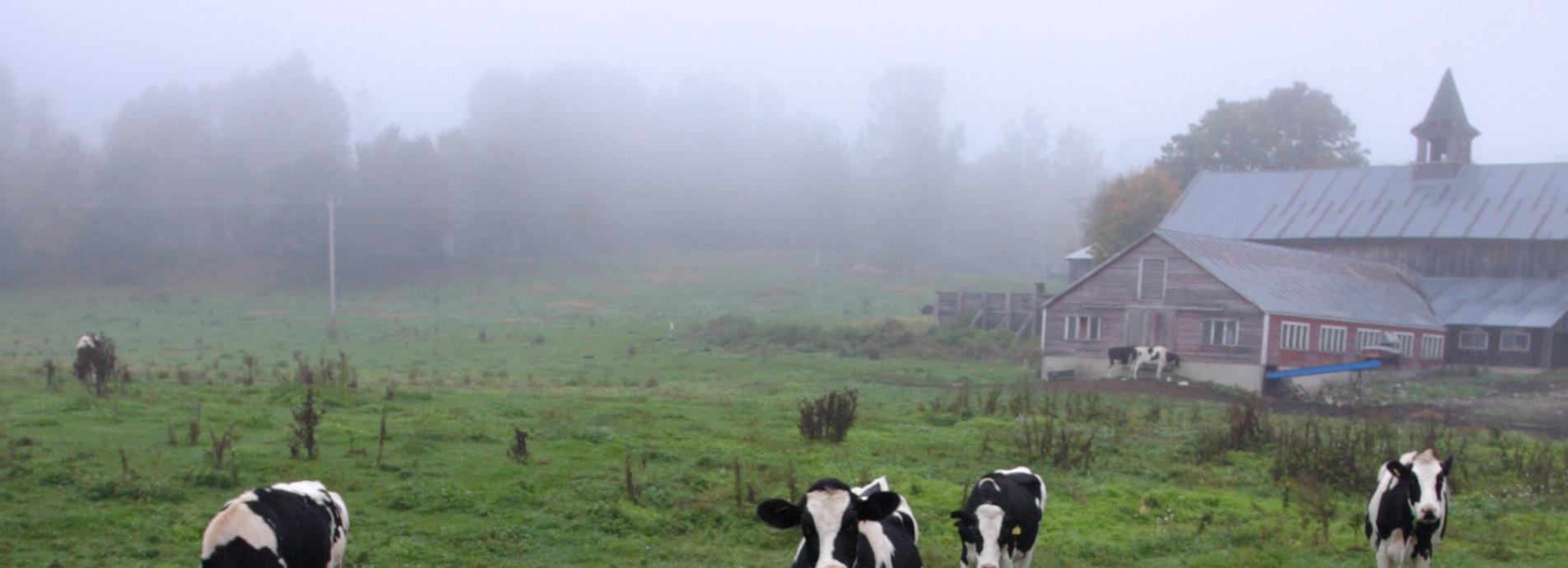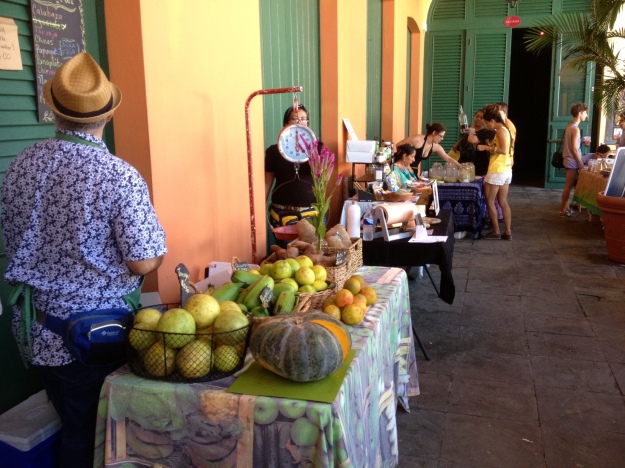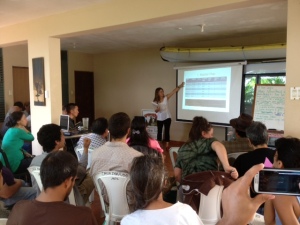NOFA-VT's Farming Beyond Borders program was initiated by Mimi Arnstein, NOFA-VT board member and farmer at Wellspring Farm in Marshfield to create and support exchanges between Vermont organic farmers and farmers beyond Vermont’s borders in order to increase production, improve environmental sustainability and strengthen financial viability via mutually beneficial relationships and cross-cultural exchange.
We got lost on the way to Tres Vidas Farm in the lush green mountains of Aibonito, Puerto Rico. It was no surprise, since the road got steeper and narrower as it became darker and darker that night. A cow's bulging eyes flashed in our headlights and a rooster ran across the gravelly road.
This was a change from the impressively restored city of Old San Juan with its remarkable colonial buildings, proud and refreshing in their classic beauty and pastel palette. A change too, from the heavy traffic and stripmalls of the suburbs, which erased any recollection that indeed we were on a tropical island. It was a distance from the urban farmers' markets where we trusted the farmers' faces, having no notion of the actual farms themselves. Now that would change.
We woke the next day to a crystal-clear morning and a view all the way to the sea peeking through grass-green mountains. Then quickly we scurried along to focus on the workshops ahead as fifty producers began arriving from all corners of this isla verde with their notebooks and potluck dishes.
It was a deep honor to present on skills for building a sustainable farm business to this extremely motivated, enthusiastic, and burgeoning community. Puerto Rican producers love their island and they want to address land access, over development, health, community building, environmental conservation, and more through agriculture. Seed producers, vegetable growers, coffee cultivators and organizers attended. Younger and older, more and less experienced, some with land and some without. All were excited to take advantage of a day of workshops and one another, soaking it all up and developing their own answers to fit their goals.
Energy was high and so was tolerance for my lapses into English to explain more complex concepts. Yet I felt proud and part of something bigger: here was the very reason I study Spanish in the time I can steal away from my farm responsibilities and other pursuits, in order to be part of bridging gaps of knowledge, to exchange what I've learned and what are my hopes, to be part of a global movement of making change through agriculture.
Walking around Tres Vidas' fields later that afternoon, with discussions all around about shadecloth suppliers, home built rootwashers, soil tests, cruise ship waste that could be made into compost, tourist market potential and Japanese beetles, I felt at home. We're all in this together, and how much sweeter that makes walking the road ahead.
[Guest post by Mimi Arnstein, Wellspring Farm]
Nourishing people, land, & justice through organic agriculture
LEARN MORE



